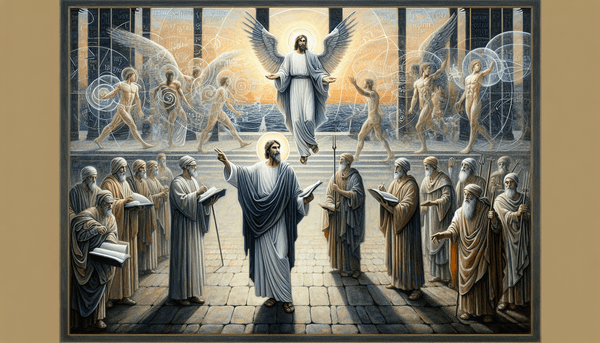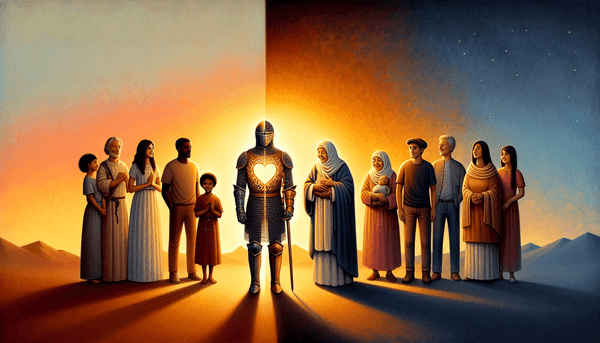Vision and Enlightenment
Jesus uses the metaphor of the eye in Matthew 6:22-23 to illustrate the significance of spiritual perception, 'The eye is the lamp of the body. If your eyes are healthy, your whole body will be full of light.' Our spiritual vision determines the path our life takes; a clear and healthy focus leads us to enlightenment and truth. Conversely, 'But if your eyes are unhealthy, your whole body will be full of darkness.' An impure intent and misguided focus can lead us away from the light into great darkness. It is a stark reminder to maintain purity in our intentions and to seek clarity in our spiritual journey. As we ponder the unchanging nature of God, discussed in our companion article, we understand that our pursuit of spiritual clarity is supported by the steadfast character of the Divine.
Heeding the Warning and Call to Repentance
The book of Joel begins with a stark depiction of devastation, as seen in Joel 1:2 and the subsequent verses, where a locust plague has ravaged the land. Such calamity serves as a metaphor for the consequences of straying from God's path. It is a reminder that obedience to divine commandments is paramount and that lessons from past judgments must be heeded. In response to such disaster, Joel calls for collective mourning, fasting, and sincere repentance, as highlighted in Joel 1:14. The passage underscores the necessity of turning back to God with a contrite heart, seeking his guidance and mercy in times of distress. It is a plea for reflection and spiritual reawakening in the face of impending judgment, reminding believers that the 'Day of the Lord' is near, as declared in Joel 1:15.
FAQ
Q: What does Matthew 6:20 mean by 'treasures in heaven'?
A: 'Treasures in heaven' refer to spiritual riches that come from living a life in alignment with God's will. These include virtues like love, kindness, and faithfulness, which have lasting value beyond our earthly existence.
Q: How can we store up treasures in heaven?
A: We can store up treasures in heaven by living a life that reflects the teachings of Jesus, engaging in acts of service, loving others, and prioritizing spiritual growth over material gain.
Q: What is the significance of the eye being the 'lamp of the body'?
A: The eye as the 'lamp of the body' symbolizes our spiritual perception. A healthy spiritual vision allows us to see the world through the lens of God's truth, leading us to live a life filled with light.
Q: What does it mean to 'serve two masters' as mentioned in Matthew 6:24?
A: Serving two masters refers to the impossibility of being devoted to both God and money. It highlights the need to choose our ultimate loyalty and emphasizes the importance of dedicating ourselves fully to God.






